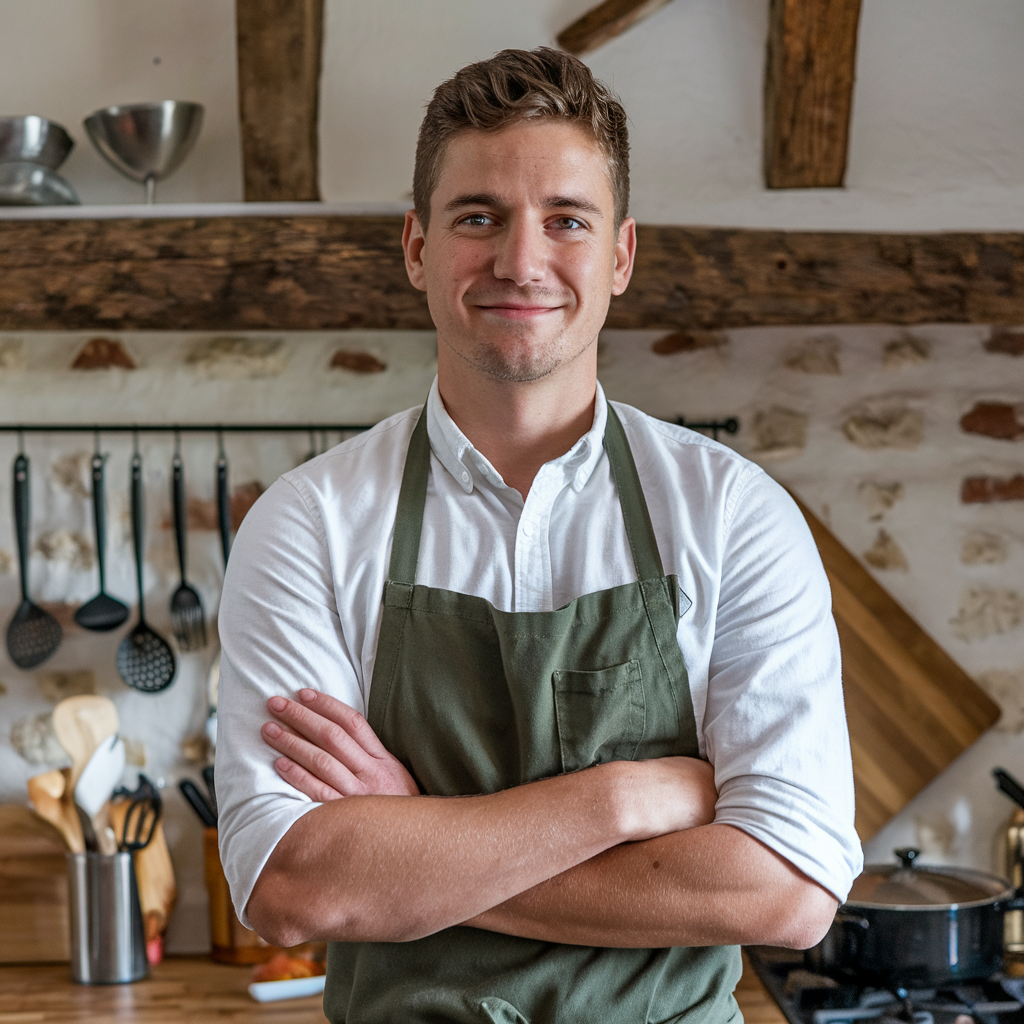For those who find joy and purpose in the kitchen, whether hosting dinner parties, organizing cooking classes, or running small catering projects, the kitchen becomes more than just a space—it becomes a stage for creativity and connection. However, with these activities come unique risks, such as accidents, equipment failures, and even liability concerns. As a kitchen enthusiast, protecting yourself and your investments is essential, which is why insurance plays a crucial role.
In this article, we’ll discuss the top insurance policies every kitchen enthusiast should consider. From liability insurance for hosting events to specialized equipment coverage, we’ll guide you through the essential protections you need to ensure peace of mind. Along the way, we’ll explore how these policies work and how to choose the best options for your needs.
Why Insurance Matters for Kitchen Enthusiasts
Kitchens can be hubs of activity and creativity, but they also come with risks. Whether you’re a home chef hosting private dinners, teaching cooking classes, or taking on small catering gigs, accidents and mishaps can lead to significant financial and legal consequences. This is where insurance becomes indispensable.
Key Risks Faced by Kitchen Enthusiasts
- Accidents: Burns, slips, and cuts can happen to you or your guests.
- Property Damage: Fires, water damage, or equipment malfunctions can cause costly damage.
- Liability Claims: If someone is injured or their property is damaged during your event, you could be held liable.
- Equipment Loss: High-value kitchen tools and appliances are essential for enthusiasts and can be expensive to repair or replace.
Proper insurance coverage mitigates these risks, ensuring you can focus on your passion without unnecessary worry.
1. General Liability Insurance for Cooking Events
Hosting cooking events, whether casual gatherings or professional demonstrations, exposes you to potential liability risks. General liability insurance protects against claims related to third-party injuries or property damage.
Why You Need It
Imagine hosting a cooking class where a guest accidentally slips on a spilled liquid or burns themselves while handling hot cookware. These incidents could lead to lawsuits, and liability insurance helps cover legal fees, medical expenses, and settlements.
What It Covers
- Bodily Injury: Covers medical expenses if a guest is injured.
- Property Damage: Protects against damage to a third party’s property.
- Legal Fees: Covers the cost of legal defense if you’re sued.
Pro Tip
If you host events frequently, choose a policy with higher coverage limits to protect against larger claims.
2. Equipment Insurance for High-Value Kitchen Tools
Kitchen enthusiasts often invest in high-end tools and appliances, such as professional-grade mixers, ovens, and knives. Protecting these assets is crucial, especially if they’re integral to your cooking activities.
Why You Need It
Imagine a situation where your high-end espresso machine or custom oven breaks down unexpectedly. Equipment insurance ensures that you won’t face the financial burden of repairs or replacement.
What It Covers
- Theft: Covers stolen kitchen tools or appliances.
- Damage: Protects against accidental damage.
- Breakdowns: Includes mechanical failure for covered items.
Pro Tip
Check whether your homeowners or renters insurance covers these items, and consider adding riders or endorsements for extra protection.
3. Product Liability Insurance for Homemade Food Sales
If you sell baked goods, meals, or other food items as part of a small catering project or side hustle, product liability insurance is essential.
Why You Need It
Selling food, even on a small scale, exposes you to risks such as foodborne illnesses or allergic reactions. If a customer claims your food caused harm, product liability insurance covers associated costs.
What It Covers
- Foodborne Illness Claims: Protects against lawsuits from food poisoning allegations.
- Labeling Errors: Covers claims related to incorrect ingredient labeling (e.g., allergens).
- Damages: Includes settlements and legal fees.
Pro Tip
Always use clear and accurate labeling for your products to minimize risks.
4. Professional Liability Insurance for Cooking Classes
Teaching cooking classes is a rewarding way to share your passion, but it also comes with unique risks. Professional liability insurance, also known as errors and omissions insurance, protects you if a participant claims your guidance caused harm.
Why You Need It
If a student follows your instructions and experiences a mishap, such as undercooked food causing illness, you could face a lawsuit. Professional liability insurance helps cover these claims.
What It Covers
- Negligence Claims: Covers lawsuits arising from perceived errors in your services.
- Instruction-Related Injuries: Protects against claims related to injuries caused by your guidance.
- Legal Defense Costs: Includes attorney fees and settlements.
Pro Tip
Document your class curriculum and maintain waivers for participants to limit liability.
5. Home-Based Business Insurance for Caterers
For kitchen enthusiasts running small catering projects from home, a standard homeowners policy may not cover business-related activities. Home-based business insurance fills this gap.
Why You Need It
Home-based business insurance ensures that your catering activities are covered in the event of property damage, liability claims, or equipment loss.
What It Covers
- Business Equipment: Protects catering tools and supplies.
- Liability Coverage: Extends protection for catering-related activities.
- Income Protection: Covers lost income if your business is interrupted due to a covered event.
Pro Tip
Discuss your business activities with your insurer to tailor your policy for your needs.
6. Workers’ Compensation for Kitchen Assistants
If you employ assistants or staff to help with your cooking projects or events, workers’ compensation insurance is crucial.
Why You Need It
If an employee gets injured while working in your kitchen, workers’ compensation insurance covers medical expenses and lost wages, protecting you from lawsuits.
What It Covers
- Medical Expenses: Includes treatment costs for workplace injuries.
- Lost Wages: Covers income replacement for injured workers.
- Employer Liability: Protects against lawsuits from injured employees.
Pro Tip
Even if you hire part-time or temporary help, ensure they’re covered under workers’ compensation.
Additional Tips for Choosing the Right Policies
When selecting insurance policies as a kitchen enthusiast, it’s important to tailor coverage to your specific needs. Here are some additional tips to help you make informed decisions:
1. Compare Quotes
Get multiple quotes to find the best coverage at an affordable price. Consider bundling policies for additional savings.
2. Assess Coverage Limits
Ensure the policy limits are sufficient for the value of your assets and the potential risks of your activities.
3. Understand Exclusions
Read the fine print to identify any exclusions, such as coverage for intentional acts or pre-existing conditions.
4. Keep Records
Document all kitchen-related activities, equipment purchases, and events. This can streamline the claims process if needed.
5. Work with a Specialist
Consult an insurance agent experienced in kitchen or small business coverage to identify the best options for your needs.
Final Thoughts: Protect Your Passion with the Right Coverage
Being a kitchen enthusiast is about more than cooking—it’s about creating experiences, sharing your craft, and enjoying the art of food. However, this passion comes with risks that can lead to financial or legal challenges if not addressed. By investing in the right insurance policies, you can safeguard your activities, protect your investments, and enjoy peace of mind.
Whether you’re hosting cooking events, selling homemade goods, or teaching classes, consider liability insurance, equipment coverage, and home-based business insurance to ensure you’re prepared for any situation. Take the time to assess your needs, compare policies, and choose coverage that allows you to pursue your culinary dreams with confidence.


